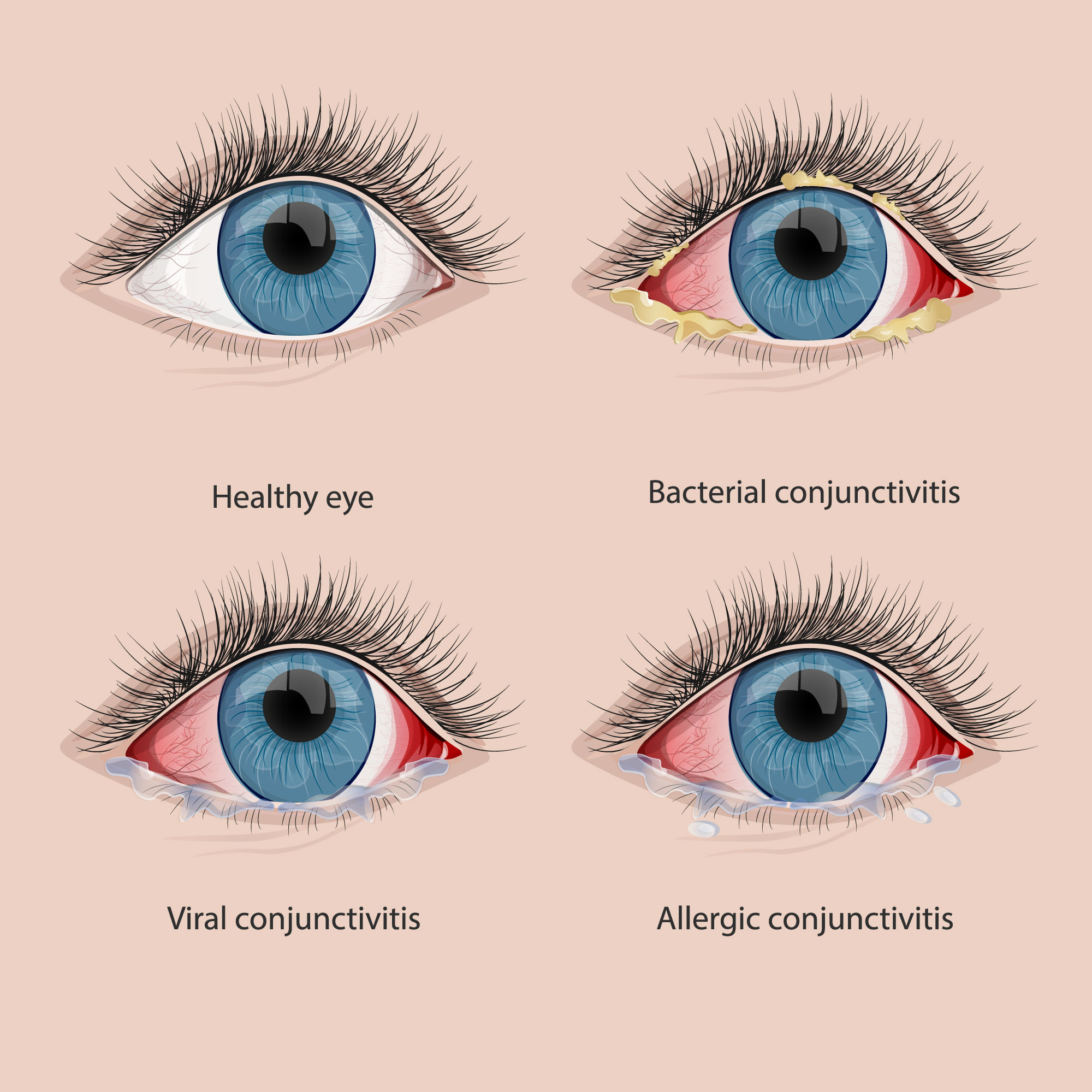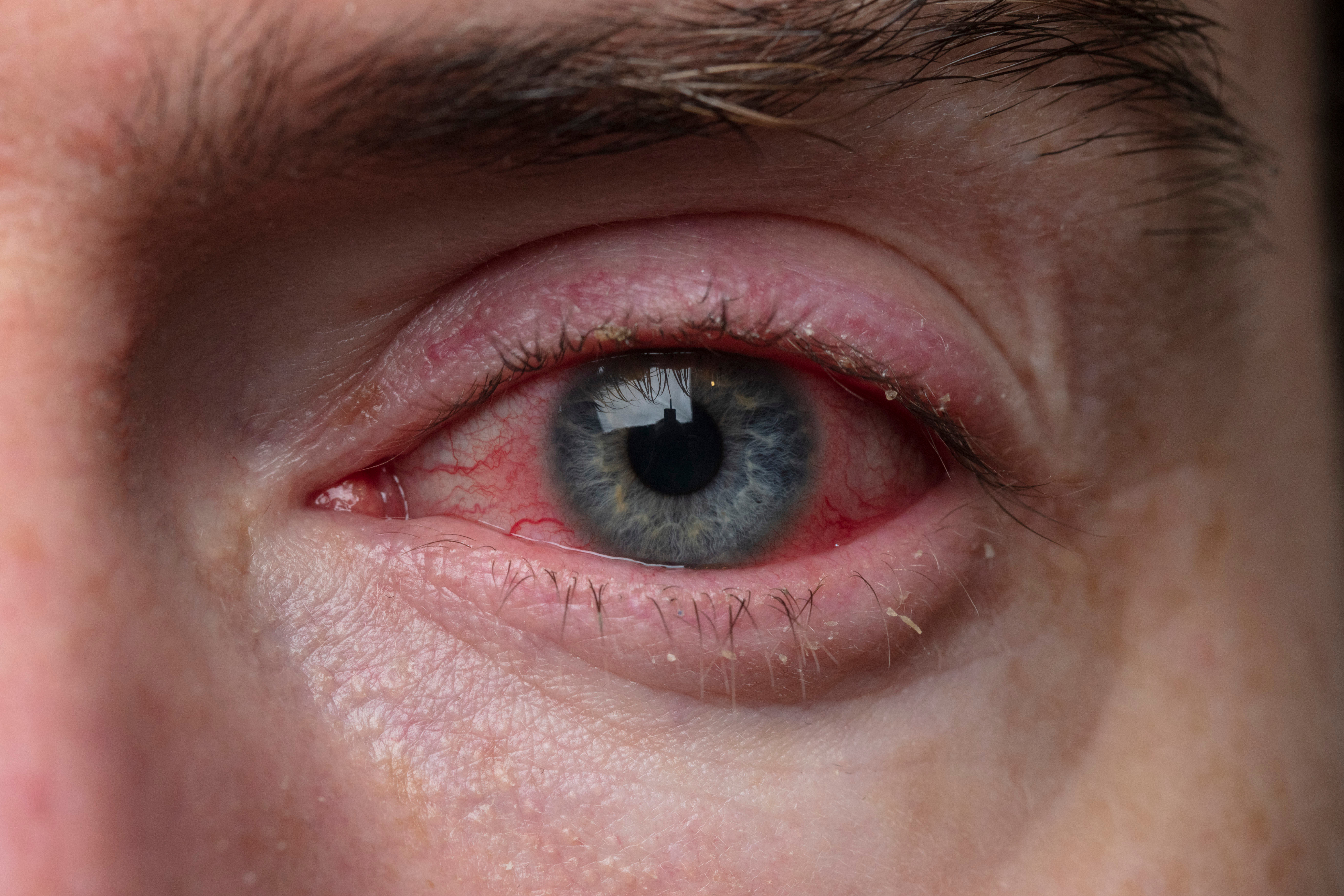Conjunctivitis
What is it?
Conjunctivitis can result from bacteria, viruses, chemicals, fungi, parasites, or allergies coming into contact with the eye. Often, conjunctivitis is referred to as "pink eye" because it can cause the white of the eye to turn pink or red.
 What are the symptoms?
What are the symptoms?
Eye discharge and sometimes eyelids become crusted together with discharge
Vision impairment
Eyelid swelling and pain
The usual white part of the eye becomes pink or red
Increased tear production
Feeling like a foreign body is in the eye, or an urge to rub the eye
Burning, itchiness, or irritation
Eye contact lenses that feel uncomfortable and or don't stay in place
Depending on the cause, other symptoms may occur
Causes
There are many types of conjunctivitis, although the three most common causes are
Infection (infective conjunctivitis)
An allergic reaction (allergic conjunctivitis)
Something irritating the conjunctiva, such as loose eyelashes (irritant conjunctivitis)
Infectious conjunctivitis can result from bacteria, viruses, fungi, and parasites. Allergic conjunctivitis is not contagious and is caused by exposure to allergens such as dust mites, pollen, animal dander, mold spoors, foods, or food additives. Most cases of acute, infectious conjunctivitis in adults do not require antimicrobial treatment. Antiviral medication may be used to treat more serious forms of conjunctivitis, such as conjunctivitis caused by herpes simplex virus or shingles (varicella-zoster) virus.
Transmission
Infectious conjunctivitis can spread in different ways, usually transmitted by

Close personal contact from person to person
Droplets in the air, by coughing and sneezing
Touching an object or surface with germs on it, then touching eyes before hand washing
The resident must be educated on the conjunctivitis infection to help stop the spread and or self-infection
Diagnosis
A Doctor makes a diagnosis based on a medical history and an assessment of signs and symptoms. Bacterial cultures can be used to identify which antibiotic is most effective.